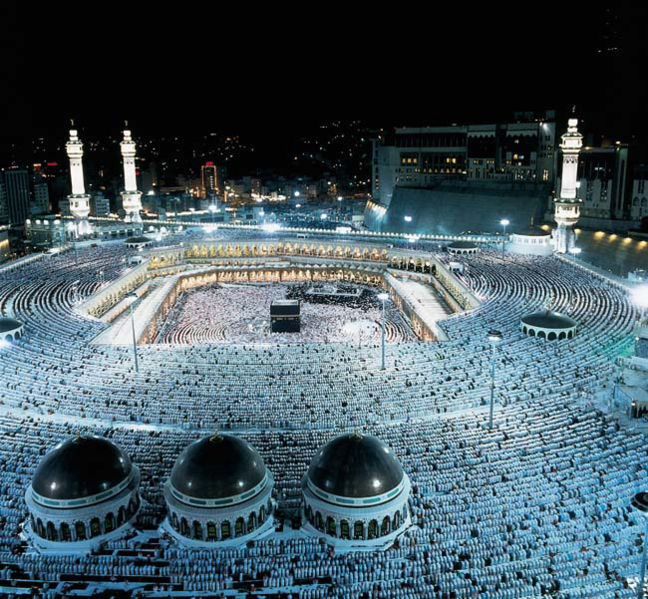The history of Islam begins with Muhammad, who was born in Mecca in 570. At the time, Mecca was the commercial hub of western Arabia. It was around 610 that Muhammad is said to have received divine revelations. From then on, he considered himself chosen by God and began to teach the message he had received: there is only one God, and all mankind must submit to him. Muhammad's entourage reacted strongly, as he was directly attacking polytheism.
In 622, Muhammad emigrated to Medina with some friends. His exile, also called hijra, marks the starting point of the Muslim lunar calendar. In Medina, Muhammad, being recognized as the religious and military leader, controlled the region. By 630, his control extended as far as Mecca.

Muhammad designated the Kaaba as a place dedicated to the worship of Allah. Prior to this, the Kaaba had served as a shrine to pagan idols. From that day on, the Kaaba became a place of pilgrimage for all Muslims.

Muhammad died in 632. The majority of Arab tribes had already converted to Islam, and the foundations had been laid for a community whose life was governed by God's laws. For Muslims, Muhammad is the Seal of the Prophets, the last in a line of messengers from God after Adam, Abraham, Noah, Moses and Jesus. He passed on his knowledge, judgments and the content of his revelation in the Koran and a number of other texts.